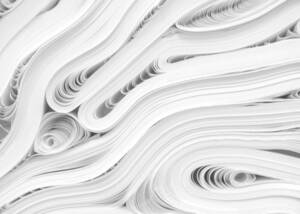Kitchen paper, tissues & co. cause trouble in the toilet
News News blog
Kitchen paper, tissues and moist toilet wipes have no place in the toilet - even if it seems tempting to simply flush them away. But unlike conventional toilet paper, which quickly disintegrates in water, these paper products remain relatively stable even when wet.

Risk of blockages and expensive consequences
The consequence: On their way through the sewage pipes, they can lead to blockages or promote them. If the paper residues make it to the sewage treatment plant, they have to be fished out of the wastewater again in complex processes. We all bear the costs for this through higher wastewater fees.
Wet-strength agents pollute the environment
Another problem: In the production of kitchen paper and tissues, so-called wet-strength agents based on plastics are used. These synthetic polymers are biologically difficult to degrade. If they end up in wastewater, they pollute the environment in the long term.
What to do with used paper handkerchiefs & co.?
So where to put the used paper tissue? It's simple: throw it in the residual waste! The same applies to kitchen paper and moist toilet wipes. This is the only way to avoid damage to sewage systems and unnecessary pollution of the environment. So remember - not all paper is suitable for the toilet!










